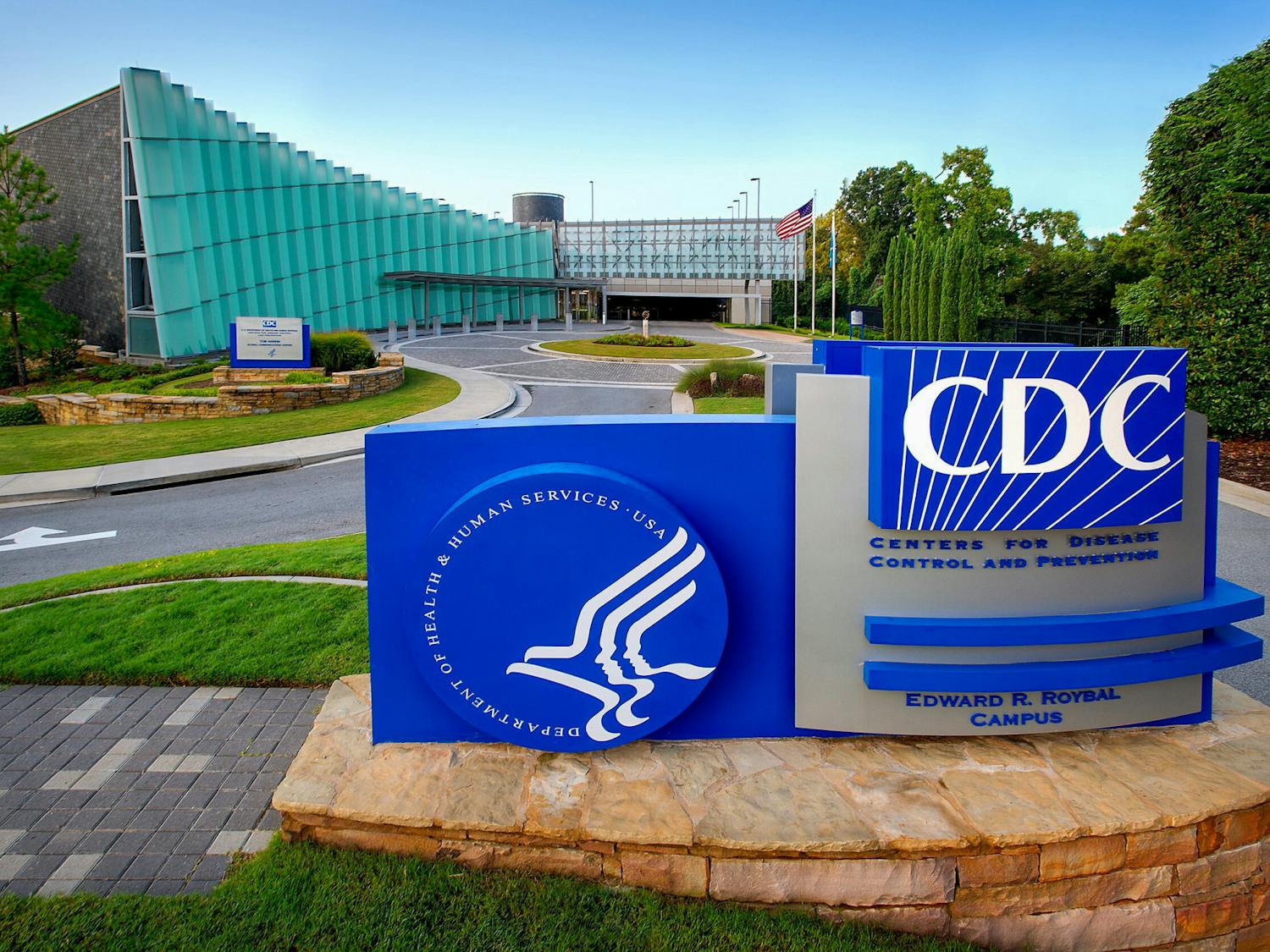Penn President Amy Gutmann announced this year’s President’s Engagement Prize and President’s Innovation Prize winners last week, providing funding for four community engagement-focused projects.
The prizes are awarded annually to graduating seniors to encourage them to design engagement projects that will make a positive difference in the world in their first year after college. Prize winners are awarded up to $100,000 to implement their projects and $50,000 stipends for living expenses for each group member.
The President's Engagement Prize was awarded to eight students across three teams.
Wharton senior Aditya Siroya, College senior Shivansh Inamdar, and Engineering senior Artemis Panagopoulou won the engagement prize for their project Aarogya, which will provide medicine free-of-cost to people in need in India. Influenced by Siroya and Inamdar’s experiences growing up in India, the trio will work to create a digital medicine redistribution platform that will provide life-saving support while combating medical waste.
“We thought that since we had experienced it so vividly during our childhoods, [India] might be the best place to sort of try and make the biggest difference," Inamdar said.
Wharton senior Kwaku Owusu and College seniors Mckayla Warwick and Hyungtae Kim won the award for their project Collective Climb, which aims to increase economic prosperity in West Philadelphia. The project will create a financial literacy program and debt forgiveness model, Penn Today reported.
“Access to financial literacy skills are just something that's very, very important regardless of what community you come from, but it's something that so often people lack the access to," Owusu said.
Wharton seniors Meera Menon and Philip Chen created The Unscripted Project to help bring the lessons of improv theater to Philadelphia youth. Inspired by their experience with theater, Menon and Chen said they wanted to teach youth how to apply the fundamental lesson of “yes, and” in improv to the real world.
RELATED:
College junior wins Beinecke Scholarship to fund graduate studies in English literature
Students frustrated by Penn’s decision to suspend Dean's List for 2019-2020
"Yes, and" is a tool used in improv when one actor states something in a scene and the other actors must accept the statement as truth and build on it.
“The idea of ‘yes, and’ is so timely right now”, Chen said. “‘Yes,’ as you know, we can’t do anything about the situation we’re facing, but ‘and’ is how we respond to it appropriately. Being flexible, being agile, being creative. Those are fundamental skills we are trying to impart.”
The Unscripted Project will hold 10-week workshops for sixth to 10th-grade students in Philadelphia, Penn Today reported.
While the projects have different goals, members of all three engagement prize-winning groups cited passion as a key part of their success.
“You shouldn't wait to start something you really believe in,” Chen said. “Penn has given you all the resources at your fingertips and you should take full advantage of that.”
Engineering and Wharton senior Nikil Ragav won the President's Innovation Prize for his project, "inventXYZ."
Ragav said his project aims to empower future inventors by creating collaborative workspaces in high schools across the nation. Ragav said he wanted to make sure schools had access to the right technology and used his own experiences from middle school and high school as inspiration. He said he didn't have the necessary tools, such as 3D printers, to create prototypes.
The workspaces, called "inventorspaces," will include tools for automated manufacturing, music and filmmaking, electronics design, and virtual reality. The program's curriculum will allow students to undertake their own technology projects. The curriculum blends tech industry standards with Common Core and Advances Placement standards, Penn Today reported.
“It’s not that schools don’t want to integrate technology,” Ragav said. "The problem is that they don't necessarily have the right mentors on staff and there's not another organization that could help them through the entire process to make sure that what they come up with is scalable and related to the real world.”
Ragav said he hopes his project will help provide education to all students regardless of their background or socioeconomic status.
“Even kids from school in rural Pennsylvania should be able to have the technology and mentorship and knowledge that students from Silicon Valley have,” Ragav said. “In today’s world, that is possible but the information and the access is not spread the way it should be.”









